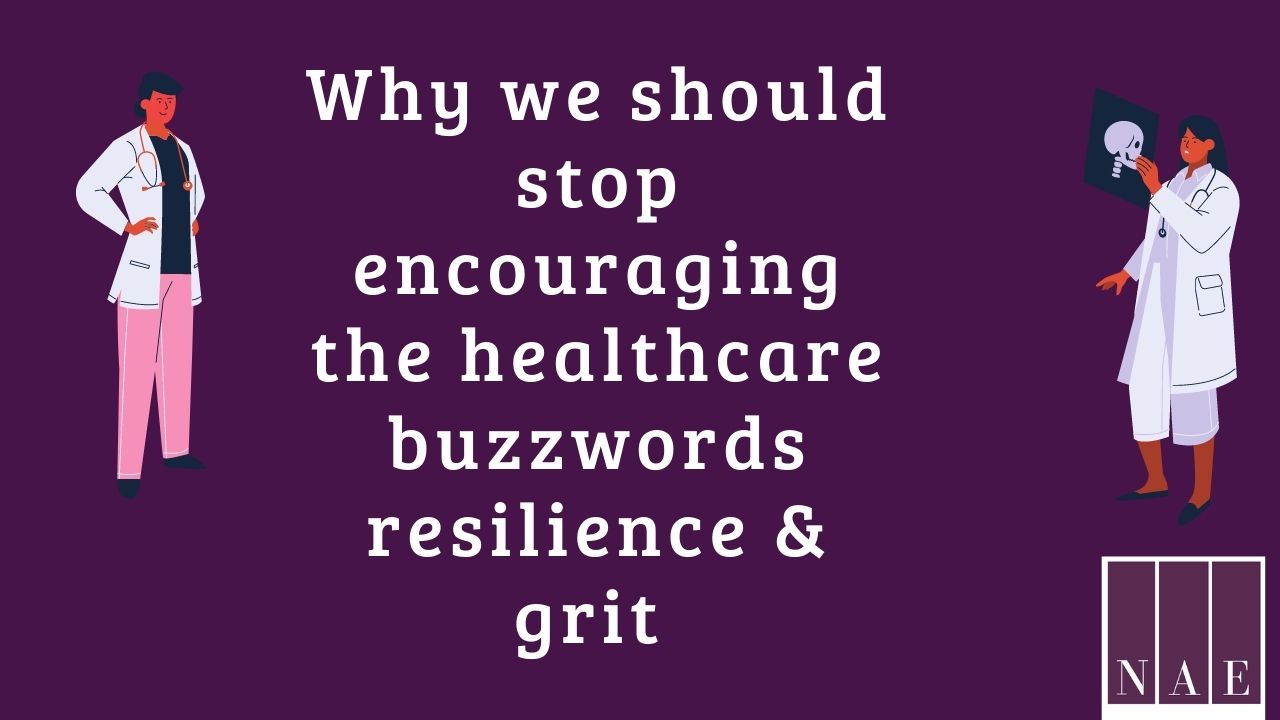Yes, Resilience and Grit are Good Things, But….
The healthcare industry is especially taxed right now. This means clinicians are working very hard, but you always worked really hard, didn’t you? We are constantly being bombarded from our workplaces with programs that increase resilience and encourage us to have grit.
Are these valuable qualities to have? Of course they are, but the reason we discuss them is because the incessant barrage of reminders to be resilient or to harness our grit puts the onus on the clinician and not the system that caused the need for this.
We see advertisements in our workplaces for pizza or ice cream parties or free yoga sessions. Do we enjoy pizza, ice cream and yoga? Sure, why not but this is not the solution to the problem. The solution is to remove, or at the very least, reduce the extreme need for resilience and grit. Knock down the system making them so vital.
Resiliency classes you take for yourself on your own accord and not to satisfy some work satisfaction situation are great for you. Don’t misunderstand that. We encourage this, but when it is the institution’s culture that causes the issue and then they put that burden back on their staff, this is where the issue lies.
Systemic Issues that Set Clinicians Up for Failure
What are the systems in place that led to unrealistic expectations? How can those systems and the culture of the organization be dismantled? Most people who work in healthcare already had those qualities to begin within. Being stressed, overwhelmed, or “burnt out” is not a failure of you as an individual. It is not a sign of weakness. They are symptoms of a sick system.
Having healthy workplaces that promote morale, manage realistic expectations, include support programs, and do not idolize perfectionism and do not glamorize that the only way to be a good employee/staff member is to overwork yourself is necessary.
Acknowledging that the opposite is harmful is also necessary. Adequate staffing, strong leadership and internal structures that identify issues early on and provide support as needed are integral to workplace satisfaction.
Positivity, Resilience and Grit
These concepts of positivity, resilience and grit at all costs are now part of the modern mindset of society – even beyond healthcare. It falls under this idea that everything should have a positive spin. It presents as if there is something wrong with your character and does not consider the environment, situation, etc.
If you make it through, you win the prize and you are resilient. If you do not, there must be something wrong with you and you lack this very necessary trait. You lose!
This again the blames the victim. It also neglects to focus on solving the structural problems (both in society and in healthcare). It also presumes equity among all who work in healthcare. This overall push to be positive actually leads to toxic positivity. It negates that circumstances can be so severe that a human should not be expected to thrive in them.
Any “normal” person would struggle under extreme scenarios. Seeing patients die or suffer serious outcomes is not a natural thing to perceive on a consistent basis. Seeing patients suffer due to inadequate resources (access to care, health insurance, funds to pay for nutritional foods, etc) over and over is not natural. Feeling overwhelmed and unable to do your best despite the strong urge to do so day after day due to bureaucratic circumstances beyond your control would weigh on anyone over time.
What can Healthcare Systems do to Fix these Unrealistic Expectations?
Instead, afford us the opportunities to share our challenges and normalize what is not normal. Stop putting healthcare clinicians in unwinnable circumstances and eliminate the unrealistic expectations. In the healthcare quality/patient safety arena that I have worked in for almost 2 decades we refer to the acceptance of subpar performances as “normalized deviance”. Reducing the structures that only encourage resilience and grit and eradicating toxic positivity and normalized deviance must become the new normal! Our hardworking clinicians and patients deserve this.
Healthier workplaces lead to more satisfied clinicians and employees. More satisfied clinicians lead to better patient outcomes. Better patient outcomes and fulfilled clinicians should be what is normalized and expected. The badge of honor of overwork should no longer be idealized.
Instead, we will now vilify this mindset. We will all support the acts of good sleep, strong structural reinforcement systems, taking breaks, encouraging vacations, lobbying for better staffing and hours and for providing supports where needed. Isn’t this a lovely idea?????
What Can Individual Clinicians do to Make Workplaces Better?
We should all make the effort to make even small steps toward this in our workplaces. Speak out against the unrealistic expectations when we feel we can do so comfortably. Use our power where we have it and can be influential. Speak out for another colleague who may be struggling. Sometimes we may be more inclined to speak out to support another than to speak out for ourselves.
Let us all empower ourselves to make subtle and gradual changes that can lead to larger impactful evolutions in this ongoing struggle. And when we do move into more powerful roles, let us not get jaded and follow the pack…
See our previous blog where we discuss Moral Injury/Distress/Burnout/Second Victimization here

